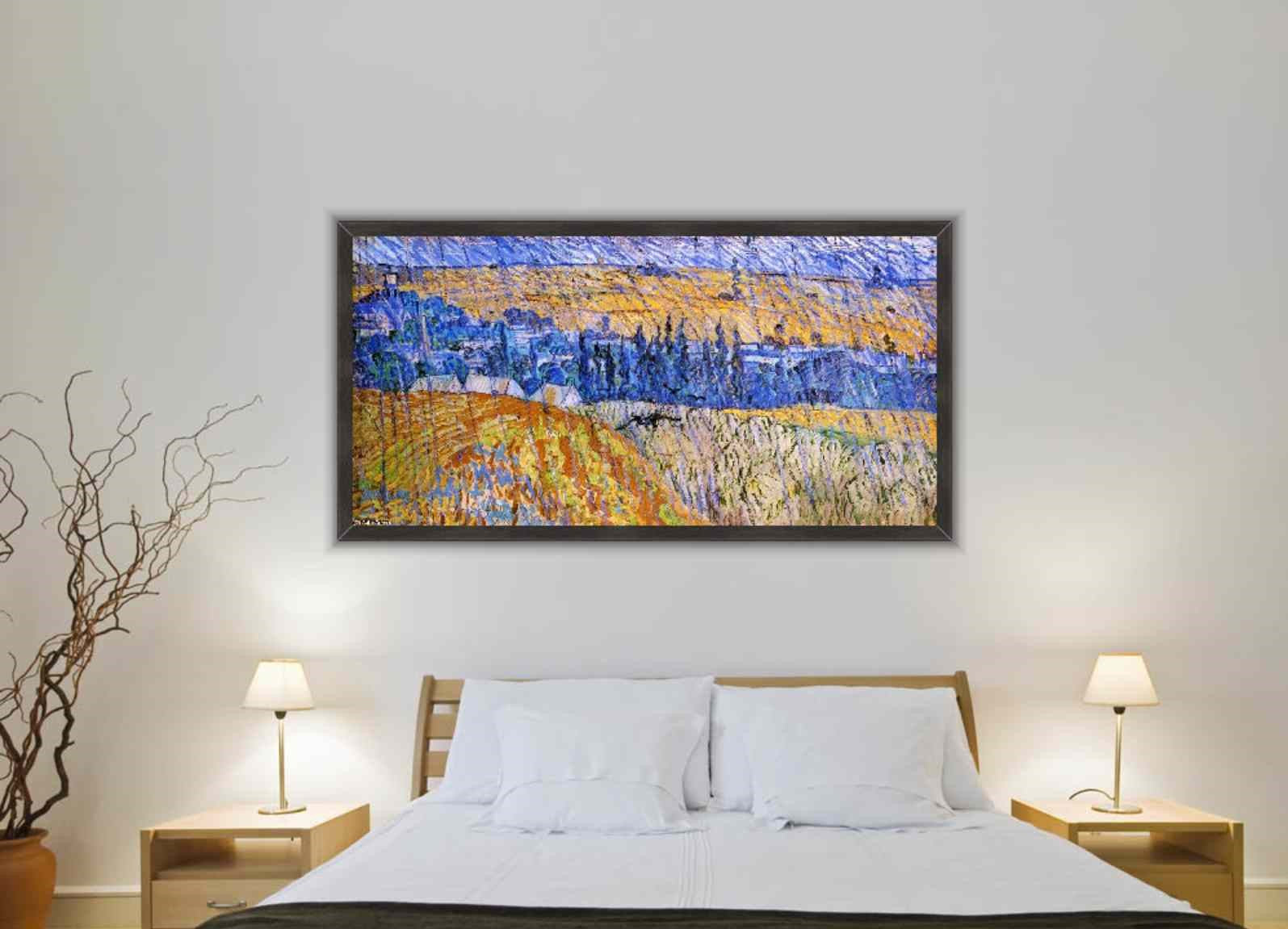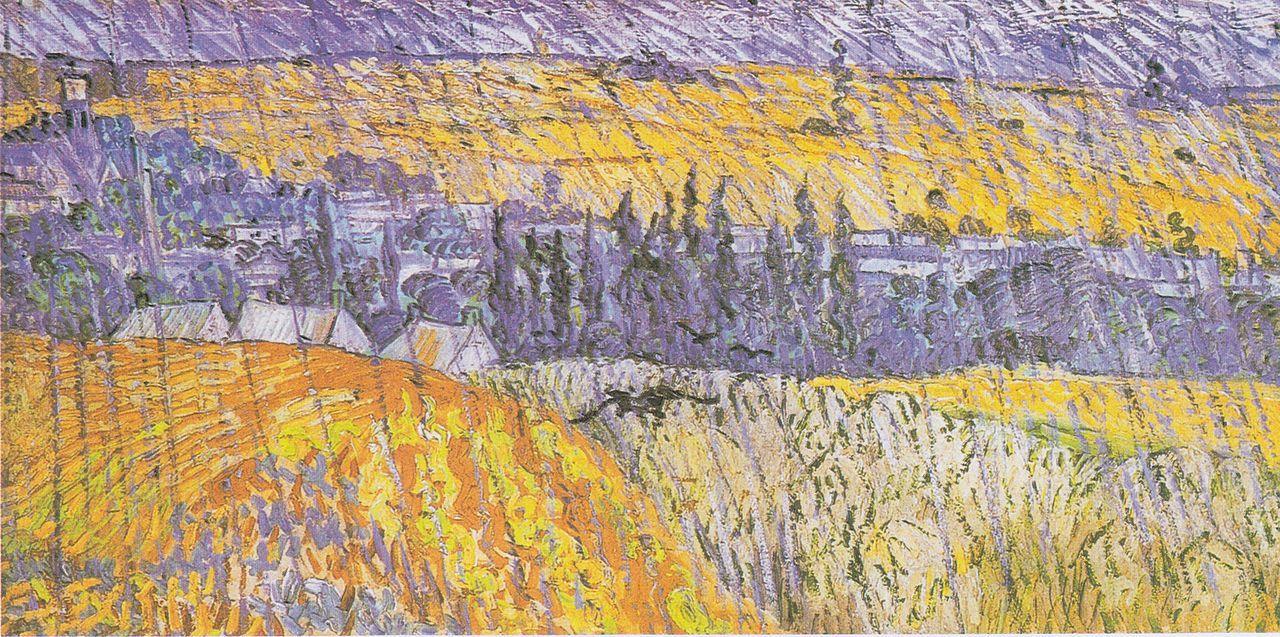Description
Vincent Van Gogh's Landscape in the Rain painting is a masterpiece of Impressionism that has captivated art lovers for decades. This work was created in 1889, during the artist's stay in the psychiatric hospital of Saint-Paul-de-Mausole, in France.
Van Gogh's artistic style is characterized by his thick brushwork technique and bold use of colour. In Paisaje Bajo La Lluvia, the artist uses a palette of vibrant and contrasting colors to create an atmosphere of intensity and drama. The rain falls diagonally, creating an effect of movement and dynamism in the composition.
The composition of the painting is impressive, with a perspective that takes us through a path lined with trees and bushes. Rain falls on the landscape, creating puddles and reflections on the ground. In the background, a small village can be seen, barely visible through the rain.
One of the most interesting aspects of this painting is its history. Van Gogh created this work while he was in the mental hospital, where he was recovering from a mental breakdown. Despite his state of health, the artist continued to work on his art, creating some of his most iconic works during this period.
Also, there is a little-known aspect of this painting that is worth mentioning. Van Gogh is said to have created this work in a single day, while sitting in the rain in the field. This story adds an element of romanticism and spontaneity to the work, and reminds us of the artist's passion and commitment to his art.



